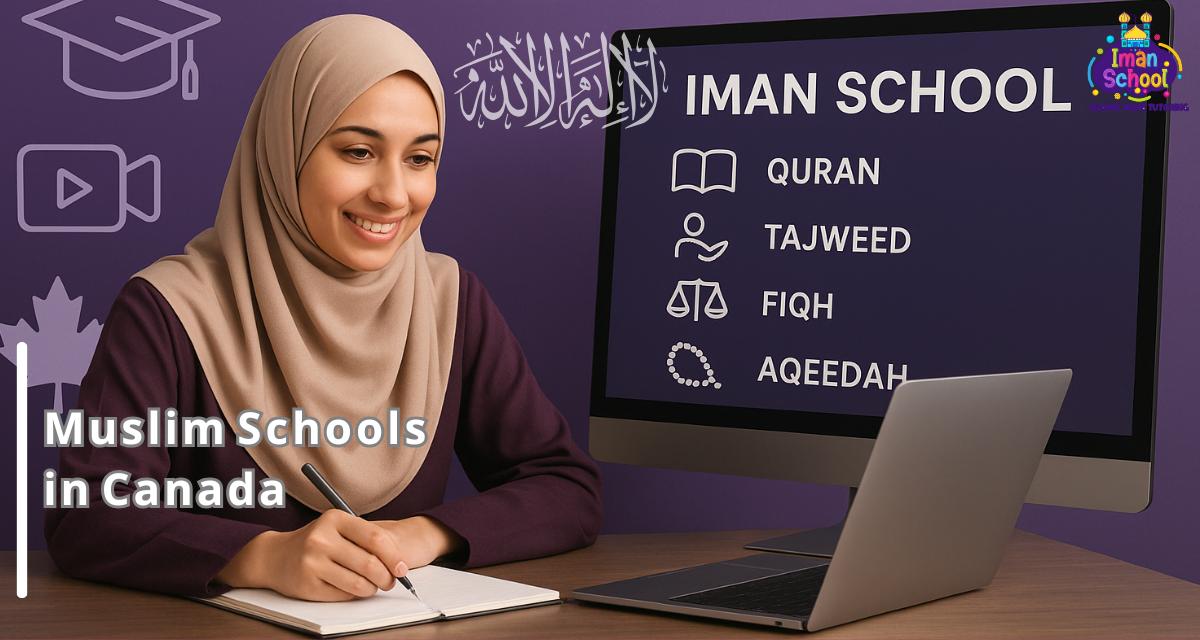Learning to recite the Quran is one of the most rewarding experiences for a Muslim. However, proper Tajweed in Quran is essential to ensure that you recite the words of Allah with accuracy and respect. Tajweed refers to the set of rules governing the correct pronunciation of the letters and words of the Quran. Without applying Tajweed rules, the meaning of Quranic verses may be altered, leading to potential misinterpretation.
In this guide, we will explore the importance of Tajweed in Quran, its role in perfecting Quran recitation skills, and how to learn Tajweed online through specialized courses and lessons. Whether you're a beginner, an adult seeking to improve, or looking for Tajweed for kids, this article will provide the resources and knowledge needed to master proper Quran pronunciation and deepen your understanding of the sacred text.
What is Tajweed in Quran?
Tajweed in Quran refers to the set of rules that dictate how the Quranic text should be recited. The word "Tajweed" comes from the Arabic root word "جود" (j-w-d), meaning to improve or perfect. Therefore, Tajweed means to recite the Quran with the correct pronunciation, articulation, and rhythm. It ensures that the Quranic phonetics are followed and that each letter and word is pronounced as it was revealed to the Prophet Muhammad (PBUH).
The primary goal of Tajweed in Quran is to preserve the purity of the Quranic text and to ensure that the words of Allah are recited with the utmost care and respect. The rules of Tajweed govern everything from how to articulate each letter to the elongation of vowels and the pauses during recitation.

Why Tajweed is Important for Proper Quranic Recitation?
Proper application of Tajweed rules is crucial for several reasons:
Accurate Pronunciation
Tajweed ensures proper Quran pronunciation, which is essential for understanding the Quran correctly. A slight mispronunciation of a word or letter can alter the meaning of a verse, which is why it is vital to apply Tajweed rules for adults and children.
Maintaining the Integrity of the Quran
The Quranic articulation prescribed by Tajweed preserves the accuracy of the Quranic text as it was revealed. Following Tajweed rules helps maintain the original sound and meaning of the Quranic verses, preventing any distortion or misinterpretation.
Enhancing the Spiritual Experience
Perfecting Quran recitation with Tajweed brings a more profound spiritual experience when reading or listening to the Quran. The beauty of the recitation enhances the connection between the reader and the sacred text, fostering a deeper understanding of Allah's message.
Respect for the Sacred Text
By adhering to the rules of Tajweed, you demonstrate respect for the Quran. It is a reflection of the reverence and care Muslims should have when reciting the words of Allah.
Principles of Tajweed
The principles of Tajweed are the foundational rules that govern how each letter in the Quran should be pronounced. Some of these principles include:
Makhraj (Articulation Points)
The articulation points refer to the parts of the mouth, throat, or nose where specific letters are produced. Knowing the correct Makhraj ensures accurate Quranic pronunciation.
Sifaat (Characteristics of Letters)
The characteristics of letters involve their sound quality, including whether the letter is heavy or light, whether it is pronounced with a nasal sound, or how long the sound should be prolonged.
Qalqalah (Echoing Sound)
This rule refers to the way certain letters should be pronounced with a slight echo. It is important to know how and when to apply Qalqalah to maintain the correct flow of recitation.
Idgham (Merger)
Idgham refers to the merging of certain letters during recitation. This is a technique used to smooth the transition from one letter to the next in specific circumstances.
Iqlab (Conversion)
Iqlab is the process of changing the pronunciation of one letter to another in specific instances. This ensures that the recitation stays accurate and maintains the right rhythm.
Ghunna (Nasalization)
This rule applies to specific letters that require a nasal sound when recited. Proper application of Ghunna ensures that the letter is pronounced in the correct manner.
How Tajweed Ensures the Correct Pronunciation of Arabic Letters and Words
In Arabic, the pronunciation of each letter varies based on where it originates in the mouth and how it is articulated. Tajweed rules ensure that each Arabic letter is pronounced as it should be, making sure the recitation stays true to the original Quranic phonetics. By applying Tajweed, you avoid common mistakes such as mixing up similar-sounding letters or misplacing stress or elongation.
The importance of correct pronunciation cannot be overstated. In Quran recitation, even a slight mispronunciation can change the meaning of the verse. For example, the difference between the letters خ (Khaa) and ح (Haa) can dramatically alter the meaning of a word. Therefore, Tajweed in Quran plays a crucial role in preserving the integrity of the text and ensuring clarity in recitation.
The Role of Tajweed in Understanding the Quran
Tajweed is not only important for correct recitation but also for understanding the deeper meanings of the Quran. The rhythm, pauses, and proper articulation of each verse help convey the emotional and spiritual depth of the Quranic message.
By learning Tajweed, you will be able to appreciate the subtleties of the Quran’s message. The rules of Tajweed help you understand when to pause for emphasis, how to elongate certain words to convey meaning, and how to recite the Quran with clarity and beauty.
Key Rules of Tajweed
There are numerous rules of Tajweed that one must learn in order to properly recite the Quran. Some of the key rules include:
- Makharij (Articulation Points): Knowing where each letter originates in the mouth is essential for proper pronunciation.
- Qalqalah (Echoing): Certain letters require an echoing sound that must be mastered for accurate recitation.
- Shaddah (Emphasis): When a letter has a Shaddah above it, it is to be pronounced with emphasis.
- Sukoon (Pause): The pause over certain letters is used to ensure clarity in the recitation.
- Ikhfa (Concealment): Some letters must be hidden or merged with others to ensure smooth recitation.
Common Mistakes in Tajweed
Many beginners and even advanced learners make common mistakes when learning Tajweed in Quran. Some of the most frequent mistakes include:
- Incorrect Pronunciation of Letters: Mixing up similar-sounding letters such as س (Seen) and ص (Saad) can lead to misinterpretation.
- Skipping Tajweed Rules: Ignoring important Tajweed rules for adults such as Qalqalah or Iqlab results in an incomplete or inaccurate recitation.
- Rushing Through Recitation: Focusing too much on speed can lead to skipping Tajweed rules or mispronouncing words. It's essential to maintain accuracy over speed.
- Overlooking the Importance of Pauses: Pausing at the wrong places in a verse can alter the meaning of the Quranic text.
Benefits of Learning Tajweed
Learning Tajweed offers numerous benefits:
-
Enhanced Recitation Skills
Mastering Tajweed improves your Quran recitation skills, making your recitation smoother, more beautiful, and more meaningful.
-
Better Understanding of the Quran
By applying Tajweed rules, you can deepen your understanding of the Quran’s message.
-
Spiritual Fulfillment
Tajweed allows for a more profound connection with the Quran. The beauty and accuracy of your recitation can lead to emotional and spiritual fulfillment.
-
Correct Pronunciation
Applying Tajweed ensures that you are reading the Quran correctly, without altering the meanings of the verses.
How to Learn Tajweed Online with Iman School
Learning Tajweed online has never been easier. At Iman School, you can find a range of Tajweed lessons designed to suit all levels of learning. Whether you’re a beginner or looking for advanced Tajweed rules, Iman School provides online Tajweed classes with qualified online Tajweed teachers.
- Interactive Online Learning: Iman School offers online Tajweed lessons with interactive sessions, where you can ask questions and receive feedback from expert teachers.
- Personalized Approach: You’ll receive personalized attention from experienced instructors who can help you master the nuances of Tajweed.
- Flexible Scheduling: With online Tajweed courses, you can learn at your own pace and schedule, making it easier to fit Quran recitation into your busy life.

How to Get Started with Tajweed at Quran House
To start your Tajweed journey at Iman School, simply:
-
Visit the Website: Browse through the different Tajweed courses available and choose one that suits your needs.
-
Sign Up for a Course: Enroll in a Tajweed course based on your level of expertise, whether you're a beginner or looking to refine your skills.
-
Start Learning: Begin your lessons with expert teachers and start mastering Tajweed and Quran recitation. With personalized attention, you will be guided every step of the way to ensure proper pronunciation and fluency in Quranic recitation.
FAQ About Tajweed in Quran
What is the best age to start learning Tajweed?
It's never too early to start. Tajweed for kids can begin as soon as they are comfortable with the Arabic alphabet, and adults can start at any time.
Do I need to learn Arabic to learn Tajweed?
While knowing Arabic helps, it's not mandatory. Many Tajweed courses are designed to teach the Quranic phonetics regardless of your Arabic proficiency.
Can I learn Tajweed on my own?
While self-study is possible, working with a qualified Tajweed teacher ensures that you are pronouncing the letters correctly and applying the rules of Tajweed properly.
How long does it take to master Tajweed?
The time it takes depends on your dedication, the time you dedicate to practice, and your learning pace. With regular practice, many students see significant improvement in a few months.
Learning Tajweed in Quran is a deeply rewarding process that improves both your recitation and your understanding of the Quran. Whether you are a beginner or looking to refine your skills, Tajweed classes are an essential step in mastering Quranic recitation. Start your journey today by enrolling in Tajweed lessons at Quran House, and elevate your Quranic learning to new heights.




